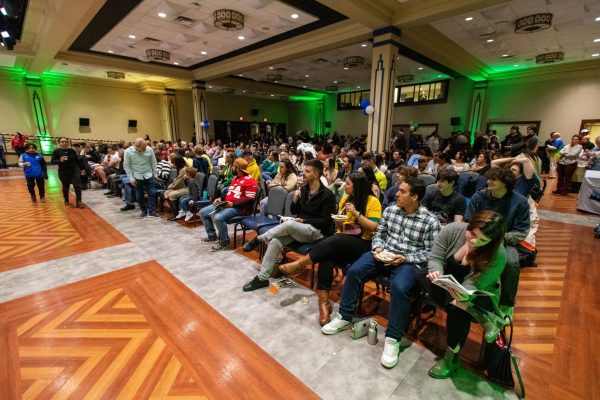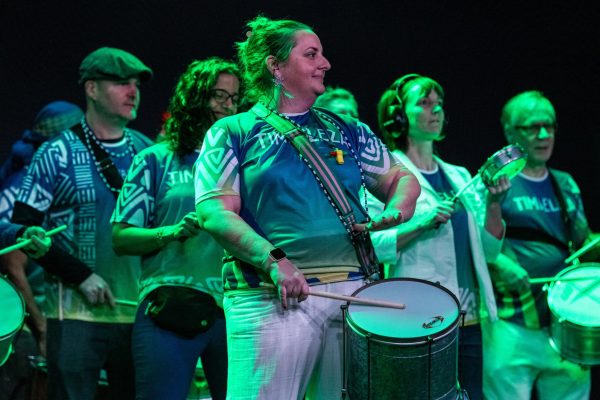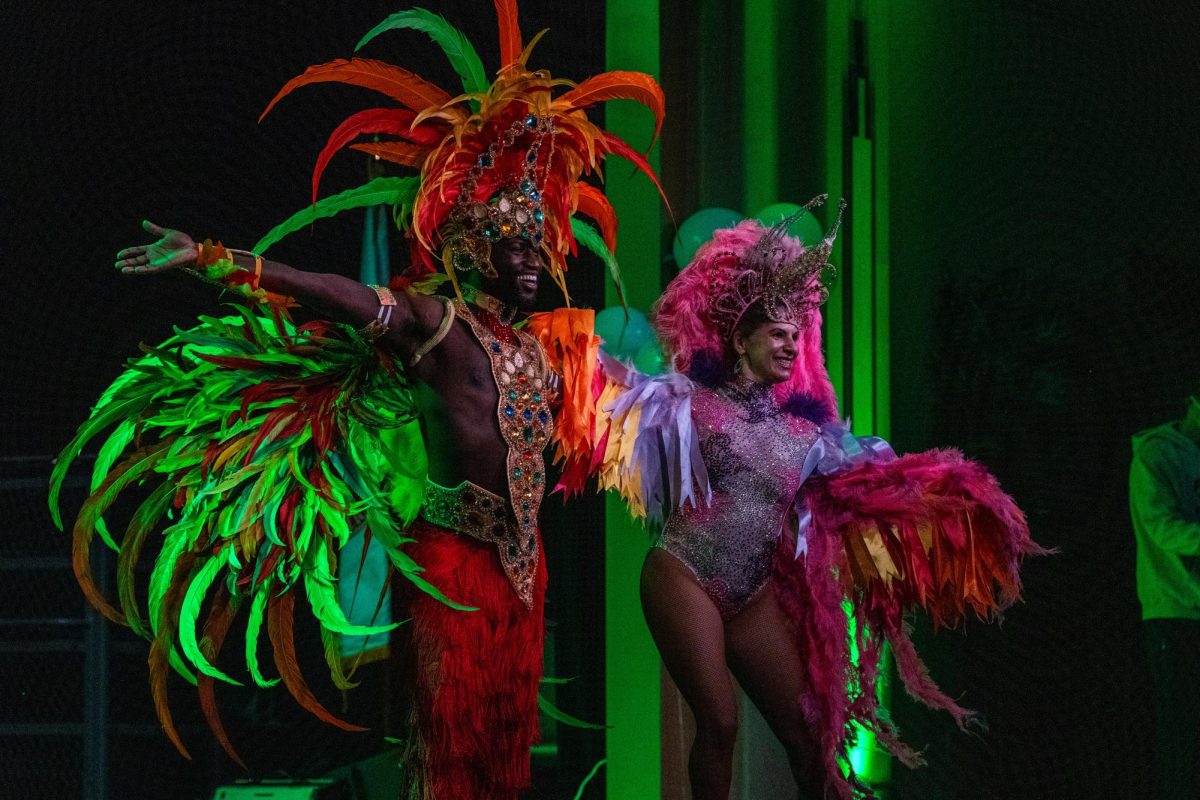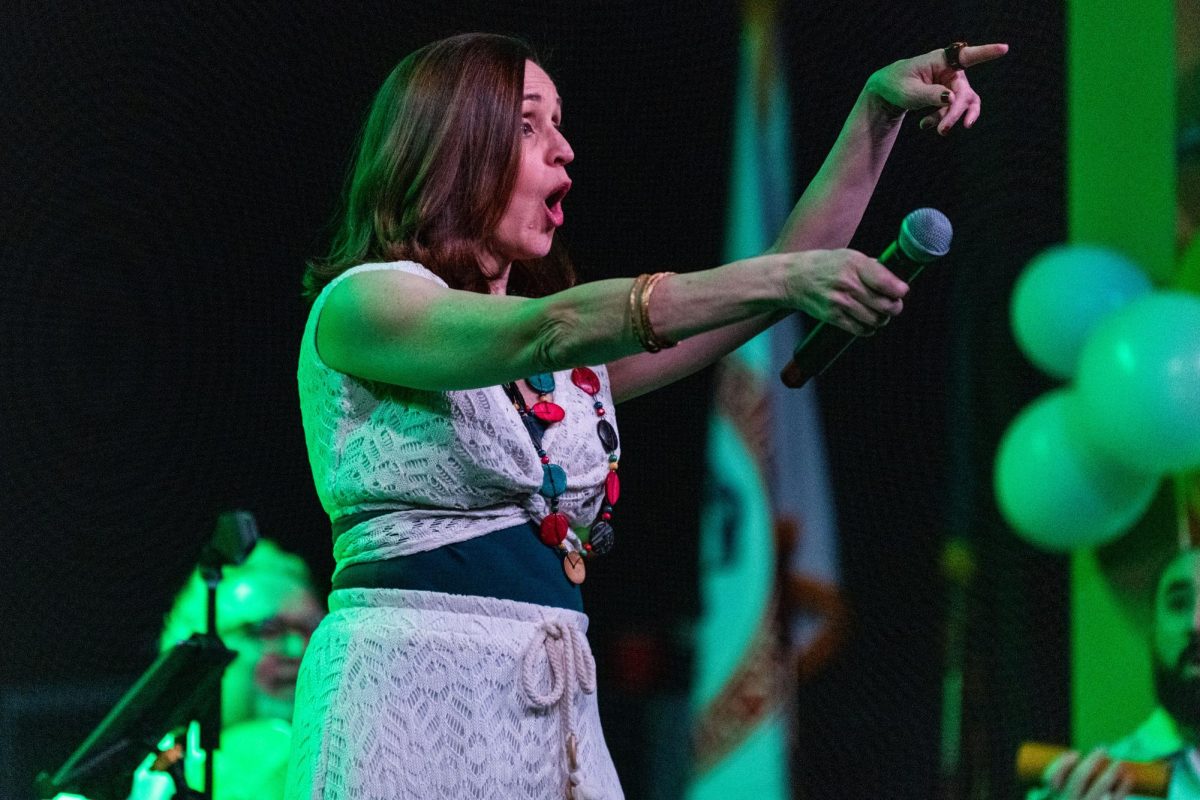The vibrant Pittsburgh Brazilian Festival made its return on Sunday, Feb. 25, delivering an evening showcasing the rich culture and traditions of Brazil and other Portuguese-speaking countries.
The festival, held in the William Pitt Union Assembly Room, was organized by the Pitt Luso-Brazilian Student Association, or Brazil Nuts, a club dedicated to celebrating the Portuguese language and the diverse cultures of Portuguese-speaking countries. Brazil Nuts also worked in collaboration with the Brazilian Student Association and Lingovation, two other student organizations at Pitt, to bring the festival to fruition.
Brazil Nuts president Michaela Saporito, a senior history major, said she was excited to host a space to celebrate Brazilian culture at Pitt, especially since the pandemic subdued the festival.
“This is the 18th iteration of the Brazilian Festival, which was an annual event that has been put on hold for the past few years due to the COVID-19 pandemic,” Saporito said. “We are excited to bring the festival back this year, not only as a space for the Brazilian and Lusophone community in Pittsburgh to come together in a celebration of their culture, but also as a space where the broader Pitt community can come to learn about and experience Brazilian culture for themselves.”

The theme of this year’s festival was “From Allegheny to the Amazon and Beyond.” Saporito elaborated on how the theme reflects the city’s vibrant Brazilian community and cultural interconnectedness.
“Despite being thousands of miles from Brazil, Pittsburgh has cultivated an active and prosperous Brazilian community,” Saporito said.
A highlight of the festival was the traditional Brazilian cuisine, provided by local Brazilian chef, Keyla Nogueira, owner of Keyla Cooks Catering. Nogueira prepared Brazilian national dish feijoada, a slow-cooked black bean and pork stew, paired with an array of side dishes.
Festival attendee Victoria Campbell, a senior communications major, explained what brought her to the event.
“I take Portuguese classes here, so I heard about [the event] through my professor. My mom is from Brazil, so I wanted to come for the food and the music,” Campbell said as she waited in line to be served.
A lineup of performances followed the catering service, including dance, music and poetry. The stage came alive with electrifying energy as the Pittsburgh Samba Group of Lua Dance Club performed, captivating the audience with their rhythmic dance moves and colorful feathered headdresses.

Following the Samba, Pitt Poetry collective AddVerse Poesia gave a dynamic multilingual poetry performance. Luana Reis, AddVerse president and fifth-year doctoral student in the Hispanic Language and Literatures Department, said through poetry, AddVerse aims to tell stories of underrepresented groups and advocate for marginalized communities.
“We meet every Friday evening at the Global Hub in Posvar to read and translate poetry, perform, sing and have fun,” Reis said. “We’re here at the event to perform a set of Brazilian poems from indigenous, Quilombola and Black poets, read in both English and Portuguese.”
The evening also featured demonstrations of the Brazilian martial art Capoeira, led by Pittsburgh native Akinlana Lowman. Capoeira originated from enslaved African people in Brazil and developed as a form of self-defense disguised as a dance. The performers used rhythmic and acrobatic movements, moving across the stage in kicks, sweeps and spins, accompanied by percussive music and call-and-response singing.
Throughout the performances, festival attendees engaged as an interactive audience, singing along to familiar tunes, dancing, clapping and collectively celebrating one another. Event volunteer Autumn Moore, a senior anthropology major, described her joy in seeing members of the community gathering to share Brazilian culture.
“How I would describe it is open — like a family gathering or a backyard barbeque with everyone talking and laughing,” Moore said. “It’s the people coming together that’s the best.”



